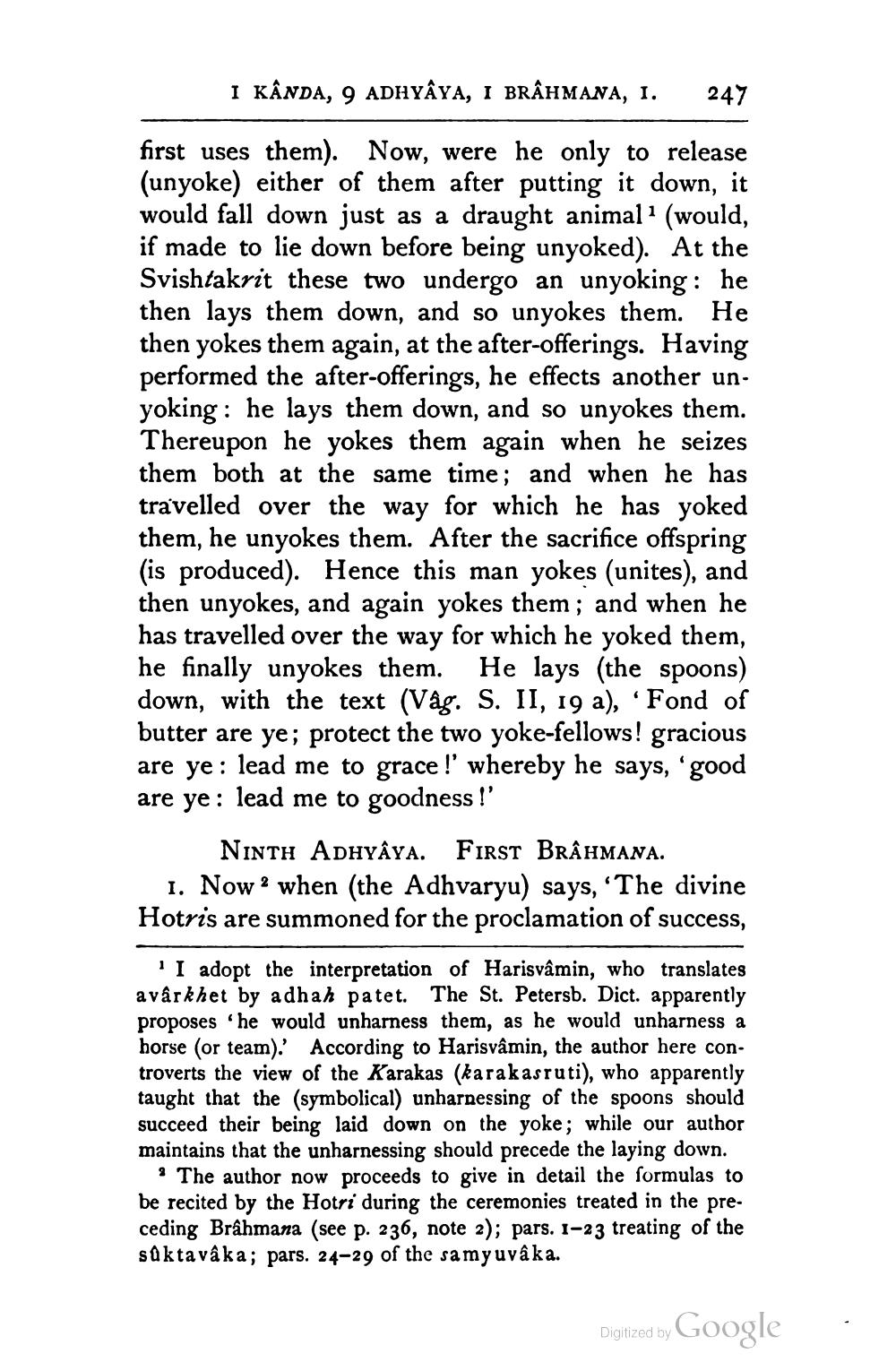________________
I KÂNDA, 9 ADHYAYA, I BRÂHMANA, 1.
247
first uses them). Now, were he only to release (unyoke) either of them after putting it down, it would fall down just as a draught animal' (would, if made to lie down before being unyoked). At the Svishtakrit these two undergo an unyoking: he then lays them down, and so unyokes them. He then yokes them again, at the after-offerings. Having performed the after-offerings, he effects another un. yoking : he lays them down, and so unyokes them. Thereupon he yokes them again when he seizes them both at the same time; and when he has travelled over the way for which he has yoked them, he unyokes them. After the sacrifice offspring (is produced). Hence this man yokes (unites), and then unyokes, and again yokes them; and when he has travelled over the way for which he yoked them, he finally unyokes them. He lays (the spoons) down, with the text (Våg. S. II, 19 a), 'Fond of butter are ye; protect the two yoke-fellows! gracious are ye : lead me to grace !' whereby he says, 'good are ye : lead me to goodness!'
Ninth Adhyâya. First BRÂHMANA. 1. Now? when (the Adhvaryu) says, 'The divine Hotris are summoned for the proclamation of success,
'I adopt the interpretation of Harisvâmin, who translates a vârkhet by a dhah patet. The St. Petersb. Dict. apparently proposes he would unharness them, as he would unharness a horse (or team). According to Harisvâmin, the author here controverts the view of the Karakas (karakasruti), who apparently taught that the (symbolical) unharnessing of the spoons should succeed their being laid down on the yoke; while our author maintains that the unharnessing should precede the laying down.
9 The author now proceeds to give in detail the formulas to be recited by the Hotri during the ceremonies treated in the preceding Brahmana (see p. 236, note 2); pars. 1-23 treating of the sûkta vāka; pars. 24-29 of the samyuvâka.
Digitized by Google
.




